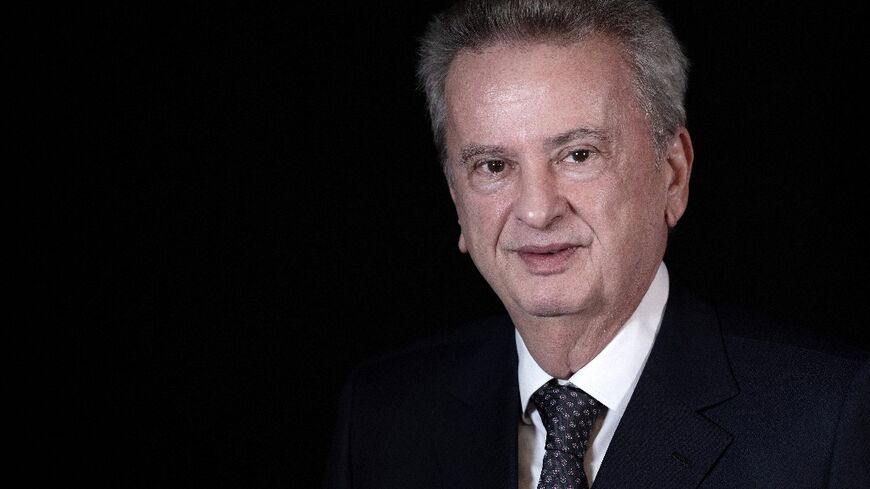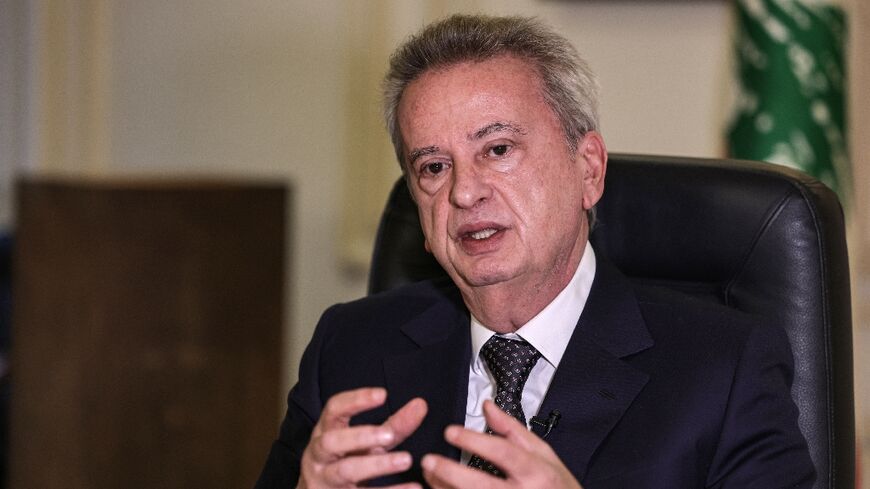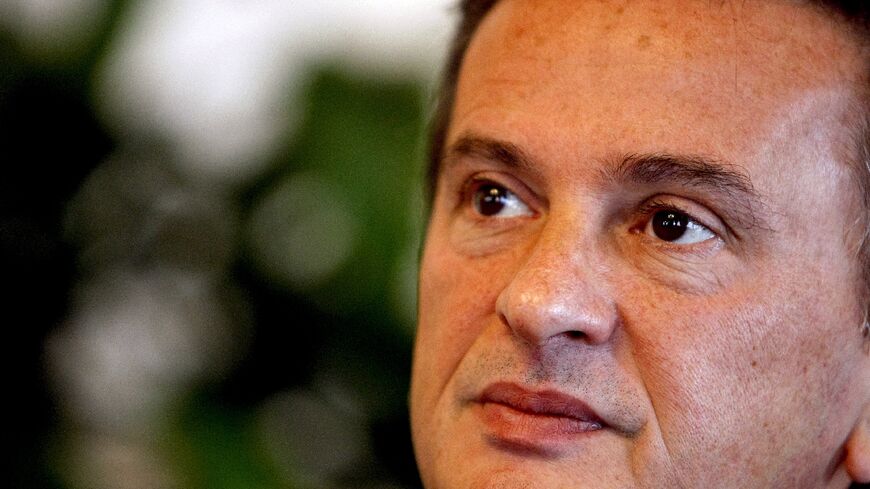From acclaim to blame: Lebanon bank chief Riad Salameh

Once lauded for reviving Lebanon's economy, former central bank chief Riad Salameh -- wanted abroad and reviled at home after years of financial meltdown -- was arrested on Tuesday by Lebanese authorities.
The 74-year-old French-Lebanese national is widely viewed as a key culprit in the country's dramatic economic crash, which the World Bank has called one of the worst in recent history.
Salameh left office at the end of July 2023 without a successor and faces numerous accusations including embezzlement, money laundering and tax evasion in separate probes in Lebanon and abroad.
He has repeatedly denied wrongdoing and defended his legacy, saying he is a "scapegoat" for Lebanon's economic collapse.
Rarely seen in public since leaving office, he was arrested on Tuesday after being questioned by the public prosecutor over the alleged embezzlement of some $40 million in central bank funds, a judicial official told AFP.
Germany, along with France, issued an arrest warrant for Salameh in May 2023 over accusations including money laundering and fraud.
In June this year, a Munich court cancelled the German warrant, saying Salameh could no longer use his post to suppress evidence but "confirmed the urgent suspicion with regard to the accusations" against him.
Salameh has not appeared before the French judiciary, but his brother Raja was placed under official investigation last month in France as part of probes there over alleged illicit enrichment.
- Revived the economy -
In August last year, the United States Treasury announced coordinated sanctions with Canada and Britain against Salameh.
His "corrupt and unlawful actions have contributed to the breakdown of the rule of law in Lebanon", the US Treasury Department said in a statement.
"Salameh abused his position of power, likely in violation of Lebanese law, to enrich himself and his associates by funnelling hundreds of millions of dollars through layered shell companies to invest in European real estate," it said.
In March 2022, France, Germany and Luxembourg seized assets worth $130 million in a move linked to a French probe into Salameh's personal wealth.
In 2023, Lebanon charged him with embezzlement, money laundering and tax evasion.
The domestic probe was opened following a request for assistance from Switzerland's public prosecutor, who was investigating more than $300 million in fund movements by Salameh and his brother.
Before his judicial troubles, Salameh was largely viewed as the architect of the financial policy that allowed Lebanon to recover from a grinding 1975-1990 civil war, and was responsible for pegging the Lebanese pound at 1,507 to the dollar.
Known for his calm demeanour, he studied economics at the American University of Beirut and worked for Merrill Lynch in the Lebanese capital before becoming its vice-president in France.
In 1993, Salameh was nominated as central bank governor by then prime minister Rafic Hariri, a wealthy real estate developer whose portfolio Salameh handled at Merrill Lynch.
Salameh received accolades, and was named the world's best central bank governor by Euromoney in 2006 and by The Banker magazine in 2009.
- 'Warning signs' -
"He's the man who knew how to revive the economy and gain the confidence of investors," said economist Nicolas Chikhani.
But after war broke out in neighbouring Syria in 2011, "warning signs started to grow" for the Lebanese economy, Chikhani said.
Successive governments failed to take action to restructure the economy, and public debt piled up.
From 2016, Salameh launched so-called financial engineering aimed at increasing central bank reserves, providing capital to banks and maintaining the value of the pound, in measures that some have compared to a Ponzi scheme.
In late 2019, he became the main focus of public anger as the economy began to unravel, and in 2020 Lebanon defaulted on its debt for the first time.
Commercial banks imposed draconian withdrawal restrictions when the economy collapsed, preventing depositors from accessing their life savings.
Salameh "never refused the political class anything", and "protected the banks whose main shareholders are politicians" because he once had presidential aspirations, one veteran banker told AFP on condition of anonymity because of the sensitivity of this topic.
In the days leading to his retirement, Salameh told local media the political class abandoned him "a long time ago".







